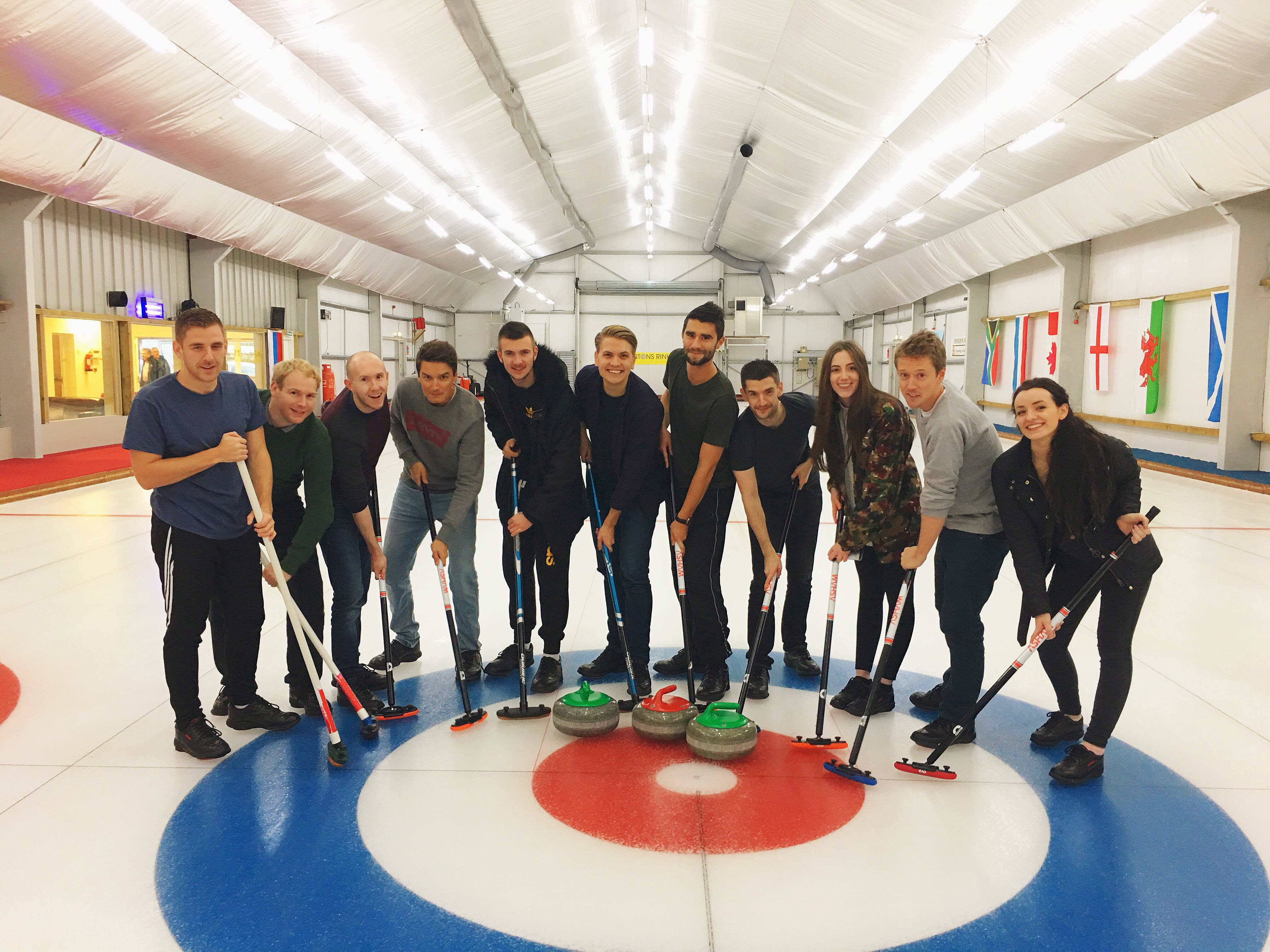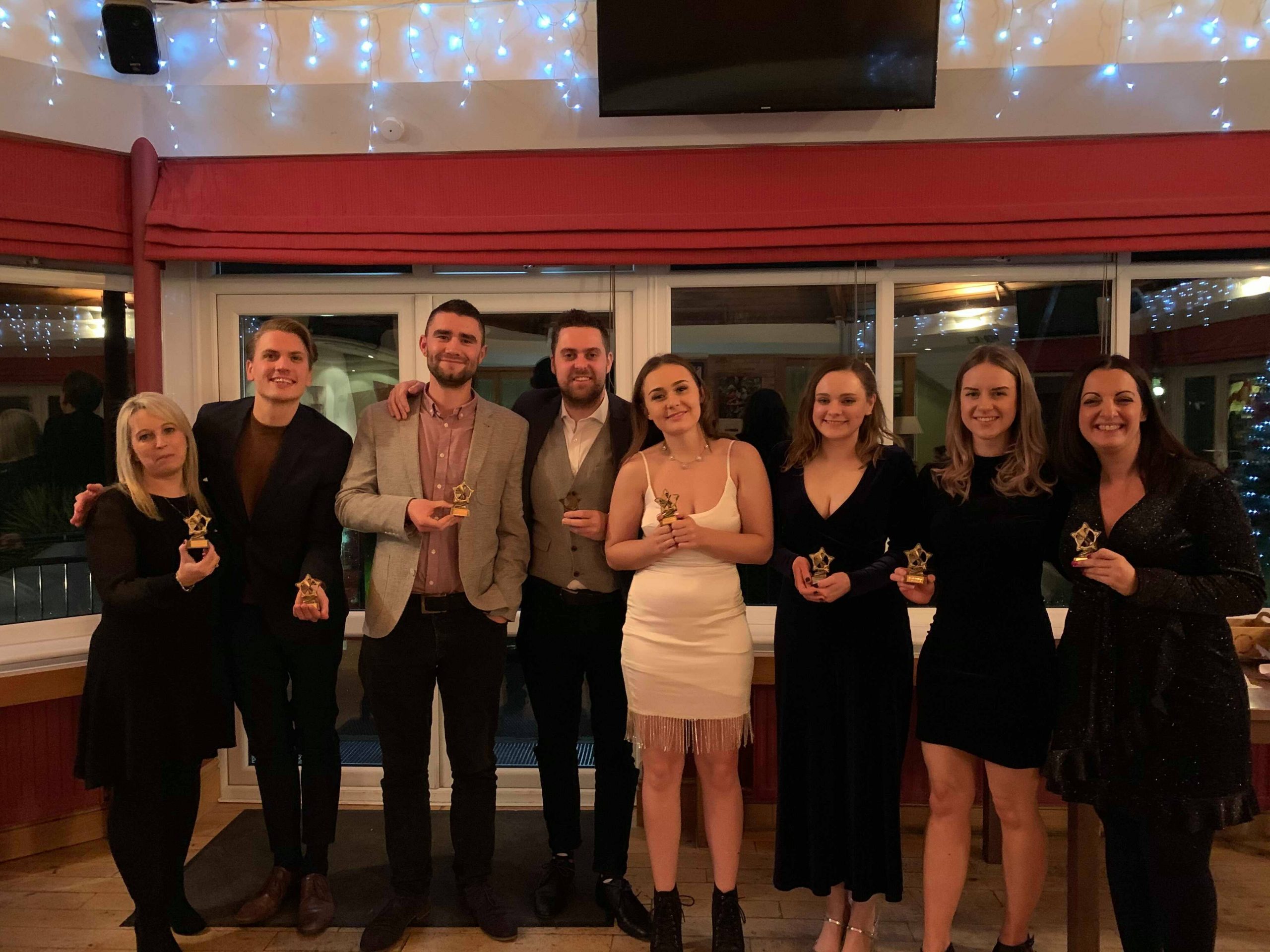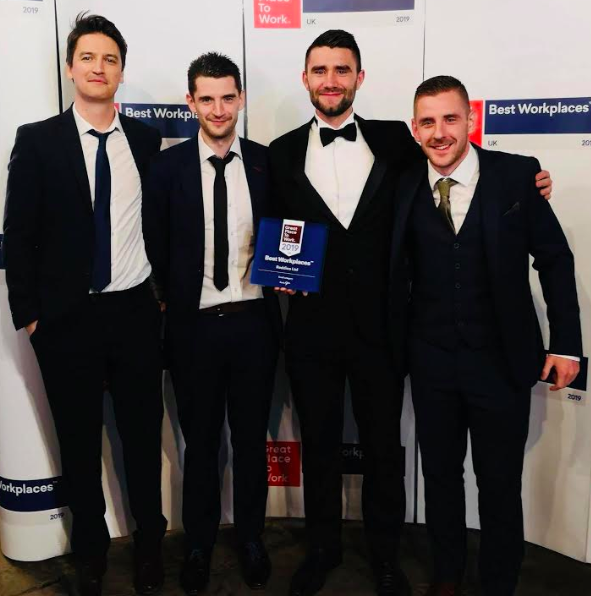
How our Head of Culture got his job at Reddico
Welcome back to our How We Got Our Jobs series. This month our Head of Culture, Luke Kyte, talks about journalism, Germany, and making the switch from writing to workplace culture.
“When I was a kid I always wanted to be an author, or some kind of writer. I remember being six, seven and just writing loads of stories about cowboys and aliens and robbers and cops, all that kind of stuff, and then reading them all out. ‘Mum, I’ve got a new story!’ Or I’d write one about a James Bond-type character when I was eight or nine and it was actually my dad who was James Bond (laughs). He was going round the world trying to save it.
|
|
“I was definitely more focused on humanities when it came to school subjects. Maths wasn’t really my cup of tea, chemistry, physics; I wasn’t very good at those at all. It was English, it was history, it was geography… I really liked German and went out to Germany on work placements and exchanges.
|
|
“Being interested in writing, journalism was always on the cards. But as I got to the end of A levels I was applying for degrees in English because I couldn’t find a good journalism degree, although there was a sports one up in the north. And it just so happened that Christ Church was advertising for a new journalism course. I read the requirements and it was multimedia, so it was going to look at web writing, newspaper writing, radio, TV, all of it. I thought, well, actually, this could be my bag instead of going off and studying English.
“I switched last-minute and ended up staying in Canterbury. I lived in that area anyway, so it just made sense. And I absolutely loved it, loved my degree. Loved writing, I enjoyed going out in the streets and talking to people, doing vox pops and taking all the camera equipment out down the streets of Canterbury in the rain, trying to find people to film and talk to. People don’t really like to talk to you unfortunately, which is the downside! But it was really good.
“I did a lot of newspaper placements (for work experience). We do work experience in year 10 or 11 at school, and I ended up going to Germany because I really liked German as a subject, I found it much easier to learn than French. I went to a German newspaper and radio station, which was really cool. I learnt a lot. The area we stayed in was up in the north of Germany, pretty much on the border with Denmark. I didn’t speak on the radio because I wasn’t fluent (laughs). It was very much just learning and understanding how things work. It was quite a cool thing to do. A lot of people go off and they sit in an office somewhere with their dad or mum or uncle. I went out there again during A levels and did another placement, which was really fun.
“I also had placements in the UK, lots of local press, the Kent Messenger, KOS Media… I also spent time with the Guardian – if you search my name on their site there are all these cricket guides I wrote for the 2010 Cricket World Cup, still online. All journalism placements, they’re really keen to get you in, show you around and get you out and about talking to people.
“I had loads of Saturday jobs when I was younger. The standard one was newspaper rounds, I’d do the local AdScene round where you get very little money, but have 500 papers with about 10 leaflets that you have to put into each newspaper the night before you go out. It took hours, and then you’re walking around the streets with a trolley.
“I was also a butcher boy at a butcher’s in Whitstable, which was, erm, interesting. I got a lot of free food, but then I had to clear up blood for the day, not the most amazing of jobs. I also worked in Sainsburys from 17, all through uni, and pretty much did every role going, whether it was checkout, meat and fish, deli, kiosk, pharmacy, bakery, stacking shelves – I’ve done the entire round.
|
|
“So I searched for all sorts of copywriting jobs, went for an interview before my last exam, and then got a job with a company, copywriting for their quote comparison website. They were based in London, so I ended up commuting an hour and 45 minutes each way. But I enjoyed it and I was there for a long time.
“I joined Reddico in 2014, when it was a really small team, based in the Maidstone Studios and sharing an office with another company. I saw the advert online for a content writer, came in for an interview with Luke (Redding, Commercial Director) and he rang me later that day to offer me the role.
“I didn’t really know what Reddico was gonna end up as in the future. There were only four of us, so I suppose it was a bit of a gamble to join, but it just made sense. It was nice having diversity with what I was writing about, with all the different clients, and eventually I started to build out the content department as I was given more responsibilities.
“It started off with hiring junior content writers, which is when Holly (Jackson, Content Lead) and Simon (Edmonds, Midweight Content Writer) applied. At the time I was only looking for one person to join the team. But they both were very different in terms of personality and writing style: Simon had a very quirky style, and Holly was a little more polished. Craig (McDermott, Operations Director) and I didn’t know who to pick, and eventually we said, let’s gamble and offer them both a job. We were going to grow later anyway and we had two really good applicants. And then you (Beth Tolson, Midweight Content Writer) joined as well and were really good at what you do, and had a great knack for proofreading and editing.
|
|
Because I started to do it at a content level, I helped Craig build processes in other areas of the business. I went on a course where I learned about how to map things out properly and started to realise I had a good eye for spotting improvements and building consistent processes. I became Head of Operations and took a lot of responsibility off Craig and Nick (who were still swamped with client work) to help Reddico become more efficient as we scaled.
“The manifesto was announced to the team in 2018, explaining how we wanted to change as a business and put people first. Nick (Redding, Managing Director), Craig and Luke showed it to me and I didn’t think it was going to work! You’re giving everyone complete freedom? I thought it would be chaos. And Nick turned round and said, ‘Well, you’re going to roll it out’ (laughs). ‘We think you’re the best person to do it because you’re really good at getting things done.’
“Suddenly I had this manifesto and was still the Head of Operations, and had to roll out all these big cultural changes to the company. That was where the role then developed into Head of Culture. I started speaking to people, figuring out how we were actually going to do it (make the changes), and naturally landed in the cultural world, focusing on people policies, and everything that comes with freedom, trust and responsibility. I think I’ve found the area where I’m strongest: pushing new ideas, pushing innovation, pushing forward – making sure we don’t just stop, stand by, and go, Oh, we’re happy now, we’re done.
“I think we’ve created a really good culture as a team, which is amazing. So much has happened in six years. And we’re not finished yet!”
Catch up on previous instalments here:
Part 1: The content team
Part 2: The SEO team
Part 3: The PPC team
Part 4: The development team
Part 5: Our designer
Part 6: The finance team
Part 7: Our production lead
Sign-up to Reddico News
To keep up-to-date with the latest developments in the world of SEO, our insights, industry case studies and company news, sign-up here.








